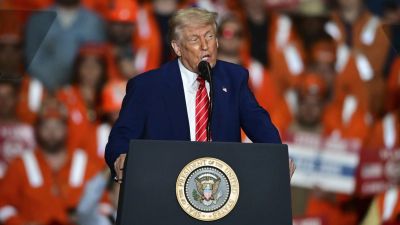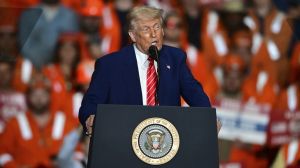Top 10 people with the highest IQ: Average is 100; #1 scored 276
Top 10 people with the highest IQ in the world: A score above 130 is typically seen as a marker of exceptional intellect, while scores below 70 may indicate cognitive challenges or developmental delays.
 Top 10 people with the highest IQs
Top 10 people with the highest IQsTop 10 people with the highest IQ: The origins of the IQ test date back to the early 1900s, when French psychologist Alfred Binet developed it as a tool to assess children’s cognitive development. His initial goal wasn’t to label intelligence, but rather to identify students who might need extra academic support. Over the years, however, the test evolved into a broader measure of cognitive ability and potential across various domains.
IQ scores are standardised with an average of 100, and most people fall within the 85 to 115 range. A score above 130 is typically seen as a marker of exceptional intellect, while scores below 70 may indicate cognitive challenges or developmental delays. Today, IQ testing plays a crucial role not just in education but also in psychological evaluations and research aimed at understanding the spectrum of human intelligence.
One of the most exclusive groups in the world of high intelligence is the Giga Society, which only admits members who score 190 or above on approved high-range IQ tests. According to its 2025 report, the society listed the top 10 individuals with the highest verified IQs. These extraordinary minds have made remarkable contributions across disciplines—from mathematics and physics to medicine—pushing the boundaries of what we understand as intellectual brilliance.
Top 10 people with the highest IQ
| Rank | Name | IQ score | Nationality | Field(s) of Expertise |
| 1. | YoungHoon Kim | 276 | South Korea | Psychology, Neuroscience, Linguistics |
| 2. | Terence Tao | 230 | Australian-American | Mathematics |
| 3. | Marilyn vos Savant | 228 | American | Authorship, Logic, Philosophy |
| 4. | Christopher Hirata | 225 | Japanese-American | Astrophysics |
| 5. | Evangelos Katsioulis | 200 | American | Medicine, Genetics |
| 6. | Christopher Harding | 198 | Greek | Psychiatry, Philosophy |
| 7. | Sho Yano | 197 | Australian | Philosophy |
| 8. | Christopher Langan | 195 | American | Cognitive Science, Philosophy |
| 9. | Rick Rosner | 192 | American | Television, Writing |
| 10. | Garry Kasparov | 190 | Russian | Chess, Politics |
Source: Giga Society Report 2025
YoungHoon Kim, IQ 276
 YoungHoon Kim
YoungHoon Kim
According to reports, South Korean native YoungHoon Kim has the highest recorded IQ in the world as of 2024, with an incredible score of 276. Official recognition of his extraordinary intelligence has come from reputable organisations like the World Genius Directory and the Giga Society. In addition to his extraordinary cognitive prowess, Kim is well-known for his vast work in a variety of fields, including psychology, neuroscience, and linguistics, where he has made significant contributions that highlight the depth of his brilliance.
Terence Tao, IQ 230
 Terence Tao
Terence Tao
Australian-American mathematician Terence Tao is well-known for his contributions to number theory and harmonic analysis. A youthful prodigy, he became a professor at UCLA by the age of 24 after earning his PhD at the age of 20. Tao, who received the Fields Medal in 2006, is respected for his ability to solve problems both individually and collaboratively. He has also written a great deal to simplify difficult math.
Marilyn Vos Savant, IQ 228
 Marilyn Vos Savant
Marilyn Vos Savant
Marilyn Vos Savant is an American writer and columnist who is best known for her long-running “Ask Marilyn” column in Parade magazine. She is included in the Guinness Book of World Records for having an extraordinarily high IQ. She is a well-known, though occasionally disputed, voice in public debates on intelligence and critical thinking because of her keen intellect and careful answers to questions about logic, physics, and philosophy.
Christopher Hirata, IQ 225
 Christopher Hirata
Christopher Hirata
Christopher Hirata, a Japanese-American astrophysicist, made headlines early by winning a gold medal at the International Physics Olympiad at just 13. He began studying at Caltech at 14 and earned a PhD from Princeton by 22. Known for his work on dark energy and the structure of the universe, Hirata has received major honors like the MacArthur Fellowship and remains a key figure in modern cosmology.
Sho Yano, IQ 200
 Sho Yano
Sho Yano
Sho Yano is a child prodigy who made headlines by earning his bachelor’s degree from the University of Chicago at just 12 years old. He later became one of the youngest US doctors after graduating from medical school at 21. His research in genetics and molecular biology has made notable contributions to science, making him a global inspiration for young scholars.
Evangelos Katsioulis, IQ 198
 Evangelos Katsioulis
Evangelos Katsioulis
Greek psychiatrist Evangelos Katsioulis, who belonged to prestigious high IQ societies, is well-known for possessing one of the highest IQs ever measured. Having earned degrees in philosophy, research methodology, and medicine, he blends a strong interest in intellectual inquiry with practical experience. Through international conferences and scholarly forums, he actively supports education and thought leadership.
Christopher Harding, IQ 197
 Christopher Harding
Christopher Harding
Christopher Harding, an Australian intellectual born in 1944, was once dubbed the “Smartest Man in the World” by the Guinness Book of World Records (1966–1988) with an IQ between 196 and 197. He founded the International Society for Philosophical Enquiry (ISPE) in 1974, a prestigious high-IQ group that admits only those scoring in the top 0.1 per cent on intelligence tests.
Christopher Langan, IQ 195
 Christopher Langan
Christopher Langan
Despite having a difficult childhood and no formal higher education, Christopher Langan, who is frequently quoted as having an IQ of almost 195, became well-known as a “self-educated autodidact.” He has worked as a forest ranger and a cowboy, but his most well-known contribution is the “Cognitive-Theoretic Model of the Universe” (CTMU), an ambitious hypothesis that combines philosophy, theology, and science. His mystery is heightened by his life, which has been characterised by both genius and personal struggles.
Rick Rosner, IQ 192
 Rick Rosner
Rick Rosner
Rick Rosner, with a reported IQ of 192, is known for his unconventional life and sharp intellect. He’s held unusual jobs, from bouncer to stripper, and later wrote for shows like Jimmy Kimmel Live! and Who Wants to Be a Millionaire. His game show appearances and work on consciousness and intelligence reflect his eccentric yet deeply analytical mind.
Garry Kasparov, IQ 190
 Garry Kasparov
Garry Kasparov
In 1985, at the age of 22, renowned Russian chess grandmaster Garry Kasparov became the youngest undisputed World Champion. He ruled the chess world for more than ten years and was well-known for his audacious, calculated play. Beyond the game, he is a respected figure in chess and international politics because of his vocal involvement and attempts to advance democracy in Russia.





- 01
- 02
- 03
- 04
- 05


























